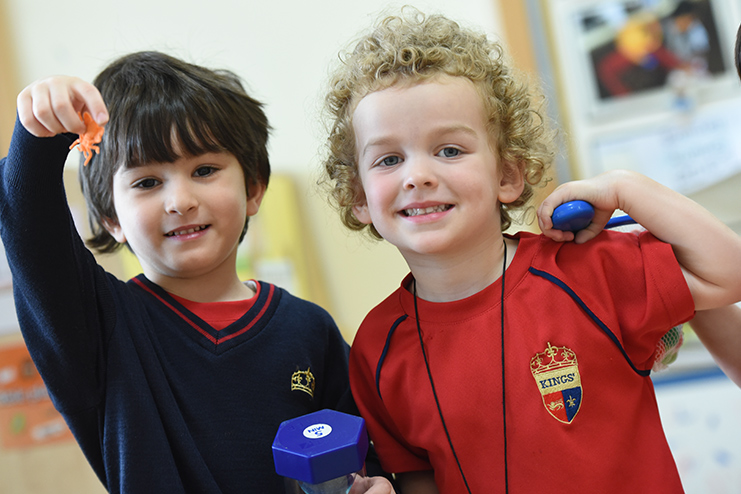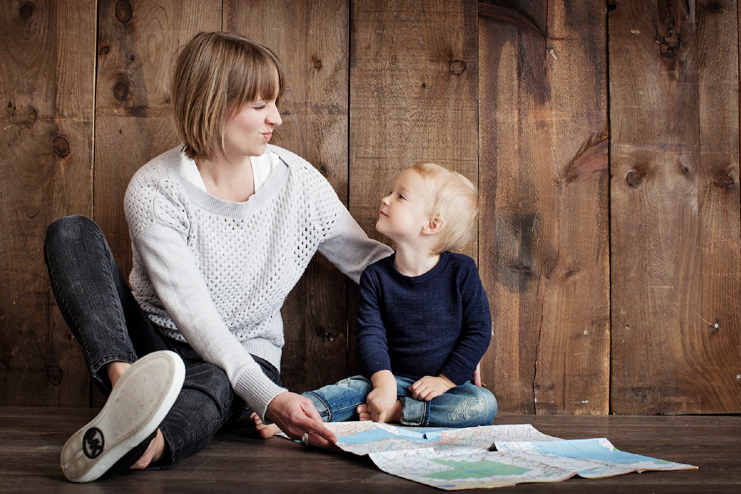Being a parent brings forth a number of responsibilities while raising your kids. It is your responsibility to instill better intelligence in them, both emotionally and mentally. A kid’s emotional intelligence matters a lot in helping them lead a healthy and smart life ahead.
Emotional intelligence is more or less defined as a person’s ability to express and manage their own feelings appropriately while respecting the feelings of others at the same time. It’s a set of skills that children can begin learning at any age of their life.
In this article, you will find the various ways that can help you enhance emotional intelligence in kids.
Kids Emotional Intelligence:

There various ways that can help to boost the level of emotional intelligence in the child. Some of them include:
1. Level Your Child’s Emotion:

Kids need to know how to recognize how they’re feeling. Just help your child by putting a name to their emotions depending on how they react to the situations. You can encourage your child to start labeling their own emotions.
When your child is upset when he/she lost a game, you can say, “It looks like you feel really angry right now. If he looks sad, you might say, “Are you feeling disappointed that we aren’t going to visit your friends home today?”
Emotional words such as “angry,” “upset,” “shy” and “painful” can help build a vocabulary to express feelings for your kids. Don’t forget to express the words for positive emotions, too, such as “joy,” “excited,” “thrilled” and “hopeful.
Also Read: How to Deal with Anger in Children
2. Show Empathy:

When your child is upset as his emotions seem a bit on the dramatic side, try and tell them about every kind of emotion that they could be experiencing. But in general, the dismissive comments will teach the child the way they are feeling is wrong.
A better approach is to validate their feelings and show empathy to others even if they don’t understand why they are so upset. If your child is crying because you told her they can’t go to the park until they do their work such as clean their room, etc., be empathetic while explaining things to them.
When the child sees that you understand how they are feeling on the inside, they ‘ll feel less compelled to show you how they are feeling through her behavior. So, rather than screaming and crying to show anger, the child will feel better when you’ve made it clear that you already understand that they are upset.
3. Teach Them To “Turn Toward”:

Relationships are dynamic. It is composed of an uncountable number of interactions among one another. As per Julie and John Gottman, a team of psychologists who are experts in this area of excellence, these interactions are explained as “micro-behaviors” and “bids for attention.”
We “bid for attention” with the people we care about by doing things they said. For example, when it comes to hope, they’ll demonstrate interest and warmth. Catching those bids, and showing you value the relationship, requires active listening and empathy skill.
So, model this behavior in your relationships, so that you can teach your kids to “turn towards” you when needed and that will raise kid’s emotional intelligence.
4. Teach Healthy Coping Skills:

It is a stepwise process as the kids learn how to deal or cope (R) with emotion in a healthy way. It can be complicated for the little ones to calm themselves down at times.
So, you have to teach them specific skills. You might also help your child create a kit that helps her regulate her feelings such as a coloring book, a favorite joke book, or soothing music, and lotions that smell good are a few items that can help to engage her senses and calm her emotions.
Just keep the items in a special box that your child can decorate. Then, when they are upset, remind her to go get her calm down kit and practice using her tools to manage her emotions.
5. Talk And Listen:

Discuss feelings and emotions with your child as they arise, not to lecture but to give your child the important information about the way they react to a specific event around in their life. Using Time In instead of Time Out (R) will help this process as well to raise the emotional intelligence in kids.
There are many research on emotional intelligence that proves there is a really healthy link between having emotions, feeling emotions, and cognitively identifying emotions no matter it is kids or adults.
For example, if a child can say they are mad (name their feelings), they are less likely to spiral into a tantrum. As per Dr. Dan Siegel, author of The Whole Brain Child and No Drama Discipline, it is always best to “name it to tame it”.
6. Develop Problem Solving Skills:

Emotional intelligence involves learning how to solve problems (R) too. After the feelings have been labeled and addressed, it’s time to work through how to fix the problem by the kids.
When your child is angry that their siblings keep interrupting them while he’s playing a video game, help them identify at least five ways he might solve the problem. Solutions don’t have to be good ideas. Initially, the goal is to just brainstorm ideas.
Once he’s identified at least five possible solutions, help him assess the pros and cons of each one. Then, encourage him to pick the best option.
When your child makes mistakes, work through what could have been done differently and what your child can do to resolve any lingering issues. Try to act as a coach, rather than the actual problem-solver.
7. Model Appropriate Ways To Express Feelings:

It is very important the kids know how to express their emotions in a socially appropriate way. The best way to teach your child how to express feelings is by modeling these skills yourself.
Use feeling words in your day to day conversation and practice talking with your kids. Say things such as, “I feel angry when I see kids being mean on the playground,” or “I feel happy when we get to have our friends come over for dinner.”
There are many studies that have proved that emotionally intelligent parents are more likely to have emotionally intelligent children. So, make it a habit to focus on building your skills so you can be an effective role model for your child in order to make them understand the importance of emotional intelligence.
Benefits Of Emotional Intelligence:
Many of the studies have found that emotional intelligence has a variety of benefits on children that help throughout their entire life. Here are a few-
1. High EQ Is Related To High IQ:
Many studies have found that children with higher levels of emotional intelligence perform better on standardized tests as compared to others. They also tend to have higher grades academically.
2. Better Relationships:
Emotional intelligence skills help the kids to manage conflict and develop deeper friendships in their life. Adults with high levels of emotional intelligence also report better relationships in their personal and professional lives, studies suggest.
3. Childhood EQ is Linked to Higher Success During Adulthood:
A 19-year study published in the American Journal of Public Health found that a child’s social and emotional skills in kindergarten may predict lifelong success. Children who were able to share, cooperate and follow directions at age 5 are more likely to obtain a college degree and to begin with the working full time job by age 25.
4. Improve Mental Health:
The kids with a higher level of emotional intelligence are less likely to experience depression and other mental illness.
Do’s And Don’t Raising An Emotional Intelligent Child:

Your kids are the most important aspect of your life. They depend on you for every means of their survival, growth, and development. Being a parent, you want to see your child grow up to be independent, strong and intelligent in the later course of time.
The best way to make sure that this takes place is by helping them understand their true sense of emotions and how to control them. Parents’ effects on children’s emotions can actually stay with them through the rest of their life. So, make sure to understand the level of do’s and don’ts of emotional intelligence to your kids.
There are 3 dos and don’ts as follows-
1. Do Recognize Negative Emotions as an Opportunity to Connect:
Communicate empathy and understanding to the children so that your child can begin to understand and piece together their heightened emotional state and asses their future. Children really have a hard time controlling their emotion.
For communication, you should use the way appropriate ways as per their level of understanding. If you have a better communication bond, then your kids will be happier to talk to you and share their experiences. Just stay compassionate, loving, and kind to your kids.
Don’t Punish, Dismiss, or Scold your Child for Being Emotional:
By disrespecting the kid’s feelings is sending an insignificant message that their feelings aren’t important. This, in general, sends the message that they are bad or some kind of negative emotion is passed to them. This perception can stay with them throughout adulthood or later period of their life.
2. Do Assist your Child to Identify Their Emotions
The biggest problem is that the kids don’t know what they are feeling or why they are feeling it. They feel a lot more variation with respect to their emotion.
In this case, you should play the magic of emotional intelligence in training the games that gives the value about their emotions. What are these emotions called as? What do they look like? What kind of situation makes them experience these emotions? These are some of the questions that you need to answer to your kids so that they will get to know the real sense of emotion.
Don’t Get Frustrated or Pass Judgement
Children often say some pretty unacceptable things which make us react in an equally unacceptable manner to the kids. If your child is acting out, take a deep breath, try to understand what they are going through and help them with solving it. Your set of behavior or action matters when it comes to the emotional intelligence of the child.
3. Do Set Limits and Problem-Solving Skills:
Being a parent, you should show them ways of responding differently in their future. Enlist by seeking alternative solutions to their struggles and hard work. Kids yearn for autonomy, and this is a great way to teach them that they are capable of self-regulating themselves in a world.
The situation seems unfair and particularly upsetting for the kids. Teach them that all emotions are acceptable but all behaviors are not, it depends upon the situation. Here’s a great phrase to set limits and aid in problem-solving: “I understand you’re upset, but hitting is not okay. How can you express your feelings without hitting next time?”
Don’t Underestimate your Child’s Ability to Learn and Grow:
The kids have an innate capacity to develop into high functioning adults with the correct guidance. As kids, they need a listening ear, a hand to hold, and a parent who can challenge them to reach from within and respond accordingly to raise the level of emotional intelligence.
Being a parent is not a small thing, you have a number of responsibilities until your child becomes independent. It is a never-ending job. I hope this article has provided all the possible ways that will help teach the emotional intelligence to your kids.










































